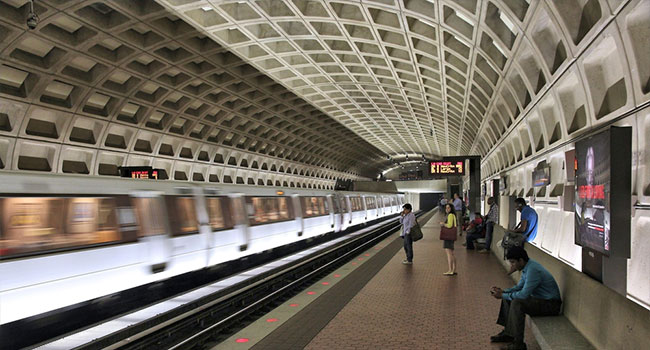
TSA, Washington Metro Test Out New System That Can Detect Explosive Devices on Passengers
The non-invasive system has been implemented by more transportation authorities around the world to address threats of terrorism in public spaces.
- By Haley Samsel
- Dec 19, 2019
Security officials from the TSA and the Washington Metropolitan Area Transit Authority, which oversees the Metro train and bus services in the nation’s capital, are teaming up to test new security technology, the agencies announced on Tuesday.
This week, both agencies are testing a “next-generation system” that aims to detect explosive devices and other potentially dangerous items before a person can enter the transit system. The technology can detect if a person is concealing an improvised explosive device (IED), including a suicide vest.
In addition, the system may identify other objects, metallic or not, that are hidden on a person’s body. Agents were seen testing the technology, the first of its kind for the transportation authority, at the Pentagon City Metrorail Station.
The passive detection system does not emit radiation, display personal anatomical details or require a person passing through to be examined by an employee. Rather, Metro customers will just walk past the equipment and operators will look for blank or cold spots on the green image of the person, known as a “green ghost.”
Equipment that evaluates passengers for potential IEDs has become more popular among public transportation officials as terrorists continue to target public spaces. One prominent example of terrorists targeting public transporation systems is the 2005 suicide bombings in London, which killed 39 people and injured more than 700 people over the course of just a few hours.
The system tested by the Metro, provided by London-based Thruvision People Screening, has already been tried out by transportation officials in New York and New Jersey. In the days before the Thanksgiving holiday, Washington travelers who rode with Amtrak at D.C.’s Union Station were also part of testing the equipment.
Metropolitan Transit Police Chief Ronald Pavlik said on Tuesday that he is interested in purchasing at least one of the systems, which cost about $90,000. For now, the city plans to borrow the systems from the TSA for major events such as the presidential inauguration, according to The Washington Post.
“The fact that it’s mobile and portable speaks for itself,” Pavlik told the Post. “We want to see how it reacts in this environment.”
About the Author
Haley Samsel is an Associate Content Editor for the Infrastructure Solutions Group at 1105 Media.